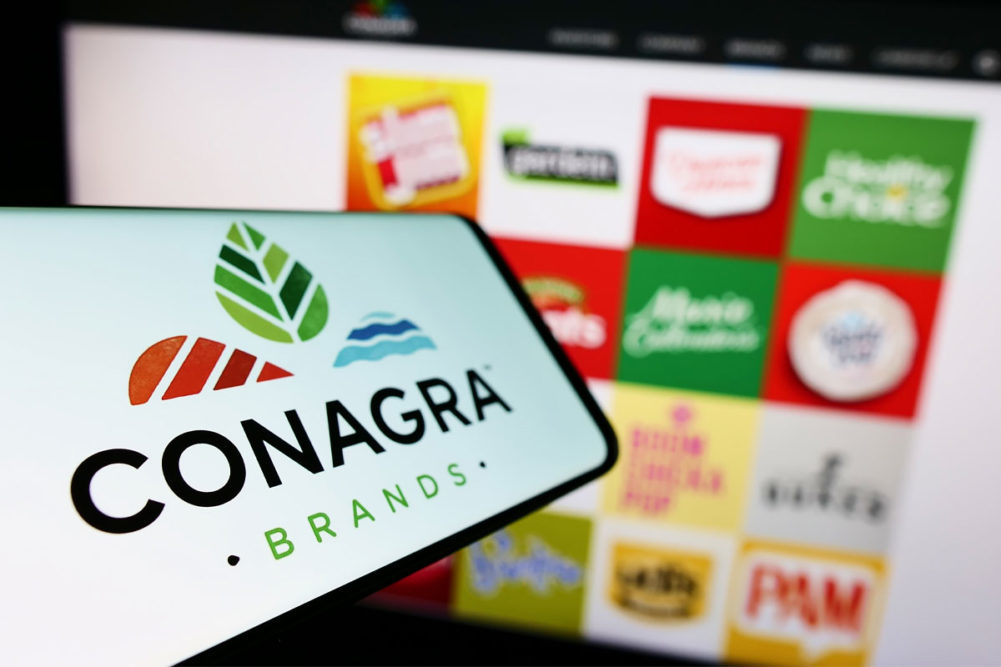CHICAGO — Conagra Brands Inc. made progress on environmental priorities, including climate change, sustainable packaging and regenerative agriculture, while also remaining committed to nourishing the communities in which it operates, in 2022. The company’s efforts toward environmental and social change were highlighted in its 2022 Citizenship Report released earlier this month.
“We are conscious about how our business impacts the world and our latest citizenship report underscores our focus on collaboration, transparency and action,” said Sean Connolly, president and chief executive officer of Conagra. “It is especially meaningful that our employees continue to drive sustainable and societal impact across our business while producing exceptional results.”
One of the key areas of focus at Conagra is defined as “Good Food,” which the company said it tries to achieve by continuously striving to make safe and nutritious foods that its customers can enjoy.
The company works with suppliers to make sure its products and ingredients are as safe as possible and meet high-quality standards. Every year, these suppliers use an accredited certification body to make sure their foods live up to the standards set by the Global Food Safety Initiative (GFSI). Approximately 95% of Conagra’s direct suppliers have a completed GFSI-recognized certification, and 100% of Conagra consumer product manufacturing facilities have a completed GFSI-recognized certification.
Nutrition is another element that Conagra strives to achieve with its products, according to the citizenship report. The Access to Nutrition Initiative (ATNI), which assesses the healthiness of a company’s product portfolio based on its Health Star ratings system, evaluated the nutrient quality of Conagra’s product portfolio in 2022. After rigorous testing, Conagra was ranked No. 1 in percentage sales from healthier products and No. 1 in its Health Star rating-based product profile. Conagra also has a product line of vegan plant-based proteins, which generated more than $179 million in retail sales in fiscal year 2022.
Conagra works with government agencies, retailers and foodservice customers to make foods that meet the criteria for federal nutrition programs such as Women, Infants and Children (WIC) and Children Nutrition Programs. At the end of its last fiscal year, the company added more than 350 stock-keeping units (SKUs) to many WIC-approved product lists across the United States, allowing shoppers to buy safe and nutritious foods that they may not have had access to before.
Another key area of focus for Conagra is “Responsible Sourcing.” Conagra said in the citizenship report that it keeps a close eye on environmental and social impacts across the value chain when it approaches the sourcing of ingredients and packaging.
“One hundred percent of our direct suppliers are monitored for controversies daily on an ongoing basis,” the company noted. “And we have implemented additional risk management processes for high-volume suppliers and suppliers of priority ingredients and packaging materials that may present heightened risks.”
According to Conagra, Accountability Framework Initiative (AFi) assessed 98.99% of Conagra’s critical primary deforestation-linked commodity volumes for fiscal year 2021 as deforestation free. The remaining 1.01.% commodity volume covers cocoa that is directly sourced from suppliers who are committed to achieving no-deforestation sourcing by 2025.
Conagra said it prioritizes the right plant and animal-based ingredients for its products. In fiscal year 2022, the company’s total ingredient buy by volume was approximately 68% plant-based, 12% dairy and eggs and 19% animal proteins. Conagra also looks for environmentally friendly packaging when it works with suppliers. According to the report, roughly 93% of the company’s packaging material met its renewable, recyclable or compostable by 2025 sustainable packaging goal success metrics in the 2022 fiscal year, which is equal to its 2021 reported progress.
Even though the Conagra’s packaging waste reduction research and development program was affected by recent industry-wide material shortages, the company has continued to grow plant fiber-based packaging as an alternative to plastic, which has resulted in an estimated 35 million lbs of plastic avoided since 2017.
For access to the full report, please click here.


